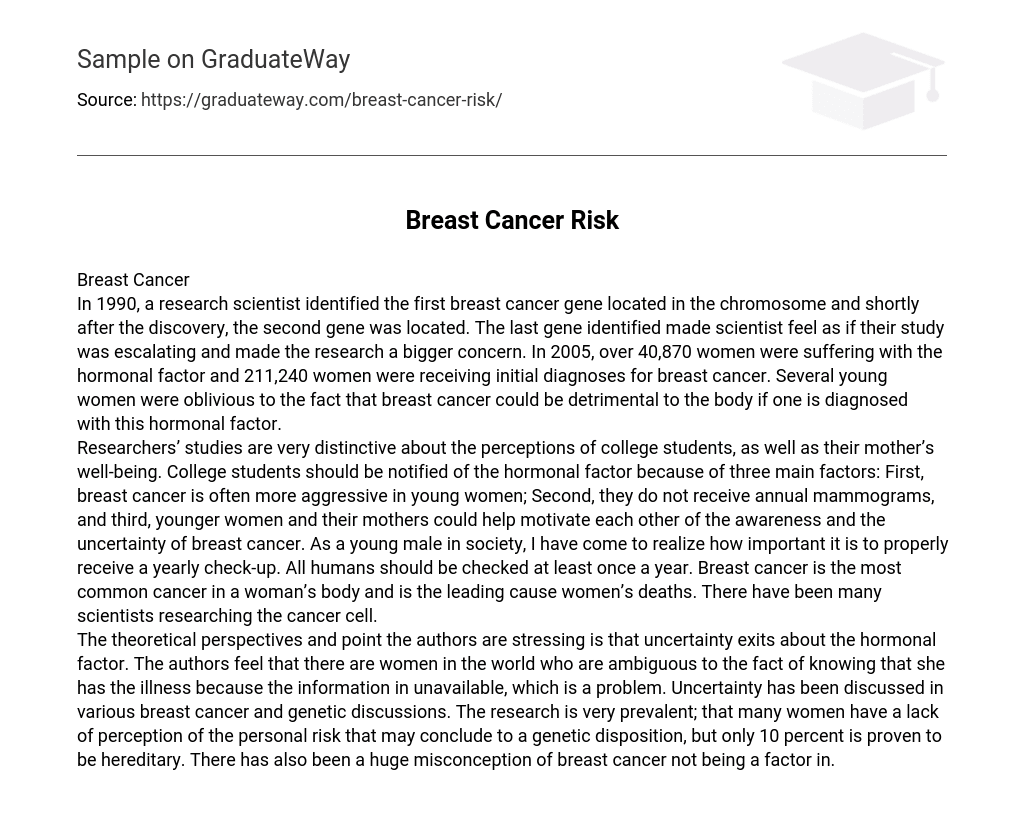Breast Cancer
In 1990, a research scientist identified the first breast cancer gene located in the chromosome and shortly after the discovery, the second gene was located. The last gene identified made scientist feel as if their study was escalating and made the research a bigger concern. In 2005, over 40,870 women were suffering with the hormonal factor and 211,240 women were receiving initial diagnoses for breast cancer. Several young women were oblivious to the fact that breast cancer could be detrimental to the body if one is diagnosed with this hormonal factor.
Researchers’ studies are very distinctive about the perceptions of college students, as well as their mother’s well-being.
College students should be notified of the hormonal factor because of three main factors: First, breast cancer is often more aggressive in young women; Second, they do not receive annual mammograms, and third, younger women and their mothers could help motivate each other of the awareness and the uncertainty of breast cancer. As a young male in society, I have come to realize how important it is to properly receive a yearly check-up. All humans should be checked at least once a year. Breast cancer is the most common cancer in a woman’s body and is the leading cause women’s deaths.
There have been many scientists researching the cancer cell.
The theoretical perspectives and point the authors are stressing is that uncertainty exits about the hormonal factor. The authors feel that there are women in the world who are ambiguous to the fact of knowing that she has the illness because the information in unavailable, which is a problem. Uncertainty has been discussed in various breast cancer and genetic discussions. The research is very prevalent; that many women have a lack of perception of the personal risk that may conclude to a genetic disposition, but only 10 percent is proven to be hereditary. There has also been a huge misconception of breast cancer not being a factor in.





